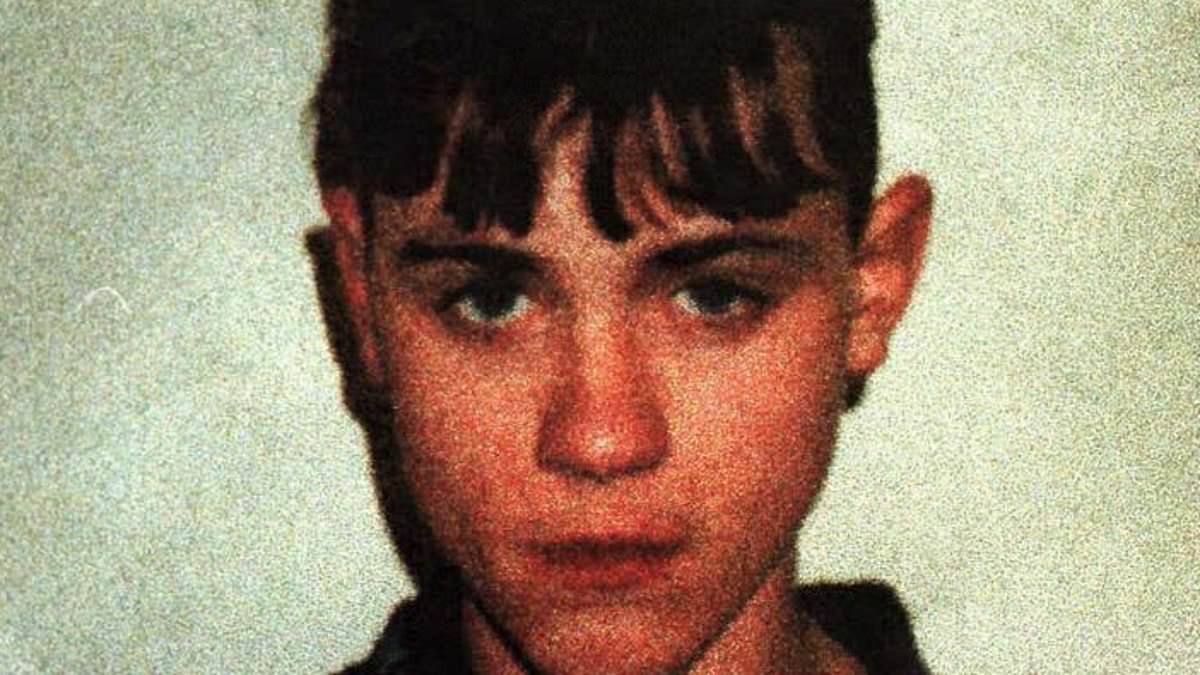The mother of a teenager who was brutally murdered in 1997 has expressed fears that the justice system may soon allow his killer back on the streets.
Christopher Hartley was just 17 when he was murdered, decapitated and dumped in a bin in Blackpool by Stuart Diamond in 1997. The teenager’s head was never found.
Diamond, then 21, was found guilty by a unanimous verdict at Preston Crown Court in 1999 and sentenced to life in prison.
But next month the ruthless killer will appear in front of a tribunal which could see him released on parole – leaving Christopher’s mother Jean Hartley a ‘nervous wreck’.
Jean, 73, said: ‘Diamond is a monster. He should never be released. I am speaking out to make sure he does not kill again.
‘How can he be fit for release when he still has not told me where my son’s head is?’
Christopher grew up in Burnley, Lancashire, according to The Mirror.
The boy was the fourth of five children and described as being ‘full of mischief and fun’.
In July 1997, at the age of 17, Christopher moved from his family home to Blackpool where his older siblings Michelle and Steven were already working.
Christopher told his mother that there was ‘plenty of seasonal work there’ and that he would stay with Michelle to keep costs down.
Although Christopher had to work on Christmas Day, he had plans to return home to spend New Year’s Day with his family.
But on December 30, Michelle’s landlord announced that Christopher had to leave and the 17-year-old found himself homeless.
That night, Diamond ‘saw he was vulnerable and needed a place to stay’.
The 21-year-old lured Christopher back to his bedsit before strangling him, smothering him and cutting his body up into three pieces in the shared bathroom of the flats.
Police later found Christopher’s headless remains in a bin behind the New Central Hotel in Blackpool just before New Year’s Day – when his mother was expecting him at home.
At a trial in 1999, the court heard how police had found blood stains in the flat as well as Diamond’s fingerprint on a stool leg in Christopher’s blood.
The sentencing judge Mr Justice Douglas Brown told Diamond: ‘It is clear you are a very dangerous young man. The most anxious consideration will be given as to whether it will ever be safe to release you.’
But now the cold-hearted killer is set to appear in front of a mental health tribunal next month with the chance of being released on parole.
The tribunal could determine whether Diamond, who is currently detained in hospital under the Mental Health Act, is able to be placed in prison instead.
If the tribunal believes moving him to prison is appropriate for the safety of himself and others, Justice Secretary Shabana Mahmood will have the final say.
The Parole Board will then decide if Diamond is ready to be released.
Diamond previously appealed against his conviction, trying to get the charge reduced to manslaughter on the grounds of diminished responsibility.
‘He shouldn’t be given the option to be allowed out,’ Jean said. ‘He is sick and is a real danger and a risk to the public.
‘I’ve asked the probation service for a photo of him, but I’ve been told I can only see it and not copy it, so I won’t know what he looks like.
‘The possibility of passing him in the street and not knowing fills me with dread.
‘I am a nervous wreck at the thought of him getting out and destroying another life and another family.’
Jean blames Diamond for the death of her son, as well as two of her other children.
Her daughter Julie suffered a short illness and died a year after his murder – on his birthday.
Jean’s second daughter Michelle, whom Christopher was staying with in Blackpool before he was made homeless, ‘never recovered’ from his murder.
Following a mental health battle, Michelle passed away on New Year’s Day in 2024. It was the 27th anniversary of Christopher’s death.
Jean’s husband also died last year.
She said: ‘Diamond ripped my family apart. He took Christopher from us in such horrific circumstances that my daughters never recovered.
‘In my mind, he is responsible for their deaths also.
‘The thought of him being on my street terrifies me. They should keep him in indefinitely.’
